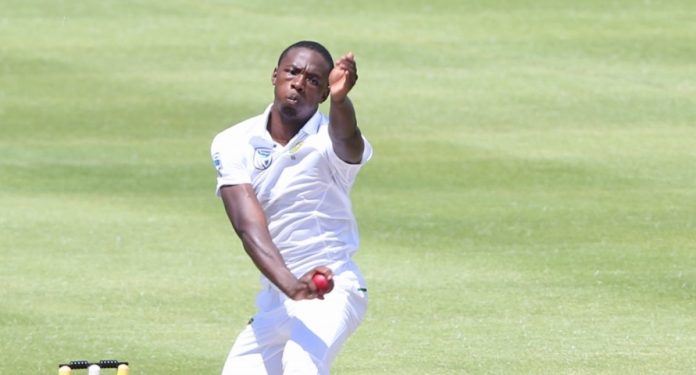135 wickets from 28 Tests. How rarely or often do you come across with those figures? At first sight, it might’ve been darn gloomy not to have Kagiso Rabada in the Cape Town Test. There was a lot of incoherent chatter, it ought to be said, when the ICC decided to ban Rabada after the infamous ‘shoulder-gate’ with Steven Smith. Fans weren’t happy, the Australians were bickering and Rabada, it seemed, had been cast away from a game that brings life in him.
Now he’s back and in the cricketing lexicon, he would want the Australians to pay.
Fortunately for him, the court appearances, being the highlight in the last few days would have taught the 22-year-old a thing or two about keeping calm. Being flared up ain’t a good thing. Moreover, tempestuous relations with contemporaries go a long way in overshadowing a talent. It did that to Dominic Cook. It often described Alan Donald as a person and it certainly castigated Merv Hughes on a few occasions.
For once, an on-field altercation, the kinds that are not nearly explosive to the ones we’ve seen in the past, hasn’t subdued a cricketer’s spirit. In the recent days, there’ve been all sorts of drama on a cricket field. You can’t be blamed for thinking that the Smith and Rabada scenario not even seemed marginally distressing as the site of Bangladesh cricketers furiously having a go at their Sri Lankan counterparts. Words weren’t being exchanged alone; it seemed at the conclusion of a 5-hour contest, Bangladesh had receded to being in a war-zone.
There was ignominy. There was commotion.
Not even a single mind-defying feet had been accomplished, just Bangladesh defeating Sri Lanka. If the fiery exchange of words between Shakib and Perera and the rest of what appeared as a ‘gang’ didn’t draw a wink of the eye from the ICC then what would have?
But all that said, what the ICC’s U-turn at Rabada episode does is that it brings into discussion the place the sport can and should accord to unpleasant instances like the altercation between Smith and the Rabada himself. While it’s a very healthy site in the sense that it gives a cricketer a fair chance to explain an incidence that could’ve even been accidental, it is likely to stab those who’d felt assuaged over Rabada being disciplined for the unruliness. Smith, as expected, hasn’t attained a great deal of pleasure from the occurrence, calling the whole thing ‘interesting’. This, in some ways, isn’t too uncalled for either. As it is, the judicial commissioner, overseeing the Rabada ruling, Michael Heron didn’t even ask the Australian captain for his comments. If this isn’t strange then what is? At the same time, when questioned at an open media briefing on the eve of the third Test at Newlands, Smith didn’t share what his inputs would’ve been. While there’s not an awful lot one can take away from Smith’s disposition to reticence, it could be argued it indicated the batsman being gutted with the whole scenario.
The ICC verdict is pleasant for Proteas but confusing for the opposition
So if Rabada indeed behaves in an indecent and reckless way, does the ICC stand on the fiasco during the second Test justify the unpleasantness that transpired? There’s hardly a doubt about Rabada’s genuine talent. But does it mean that cricketers, pumped in fury and exploding with emotions on either side can be allowed to tamper with the game’s spirit? Whose side are you therefore on? Lastly, is there any parity in the extension of ICC’s code of conduct when it comes to all cricket playing nations?

